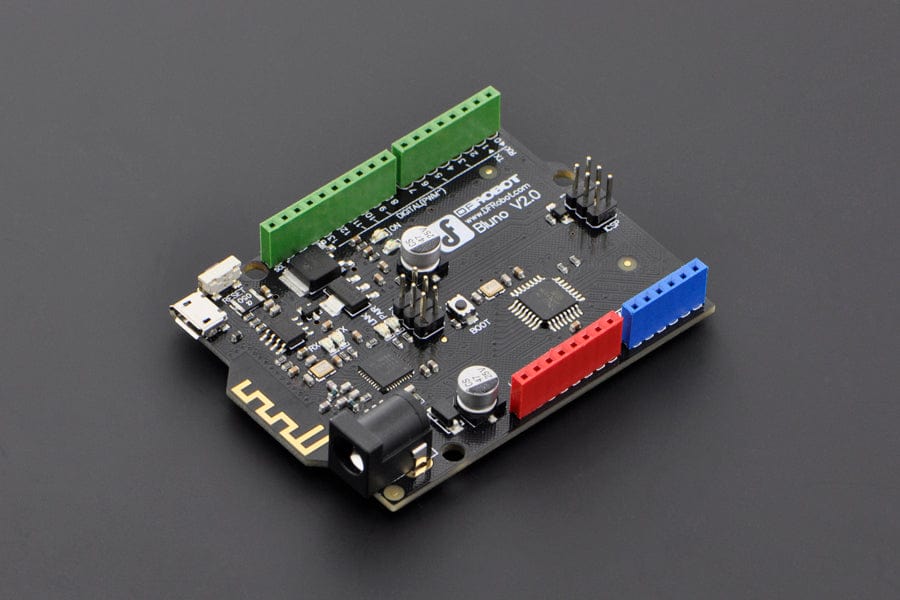
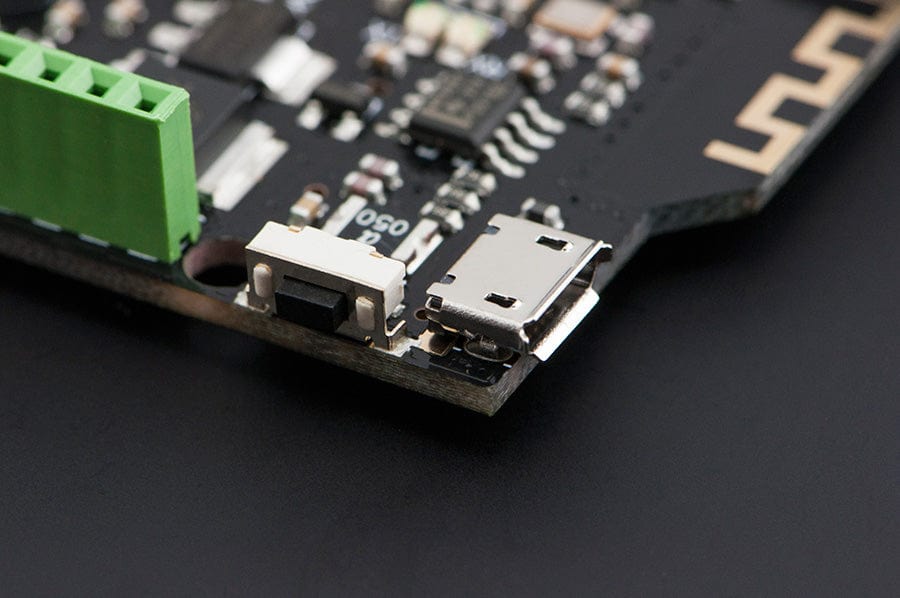
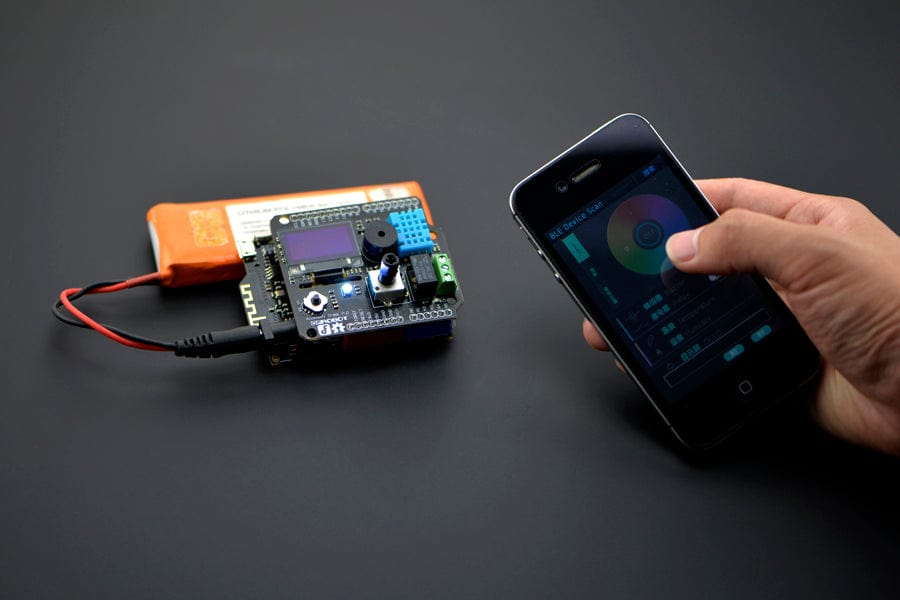
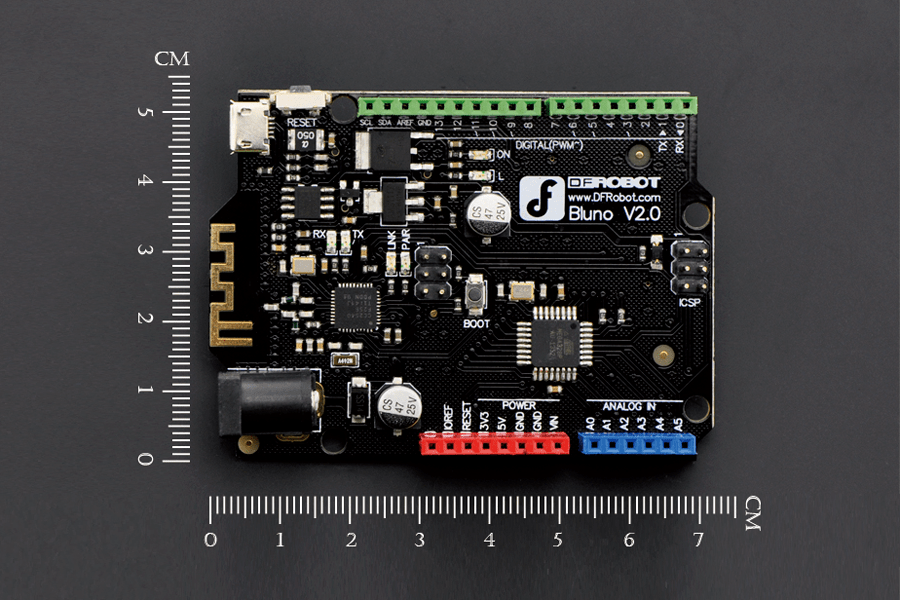
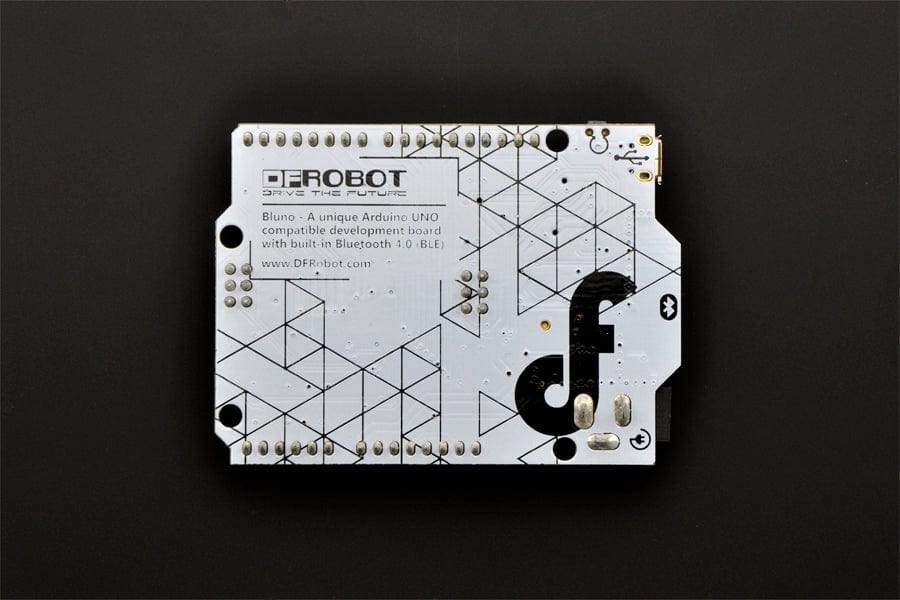
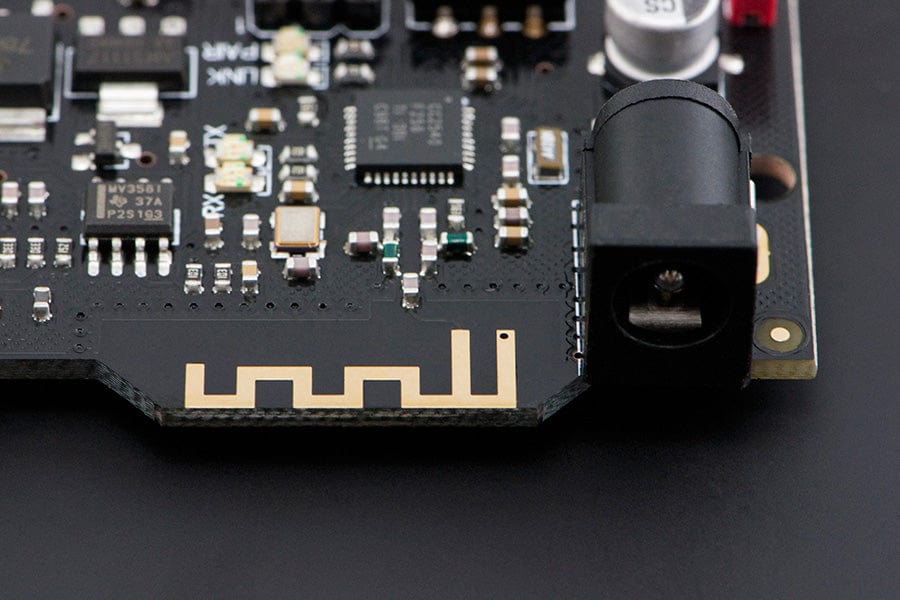
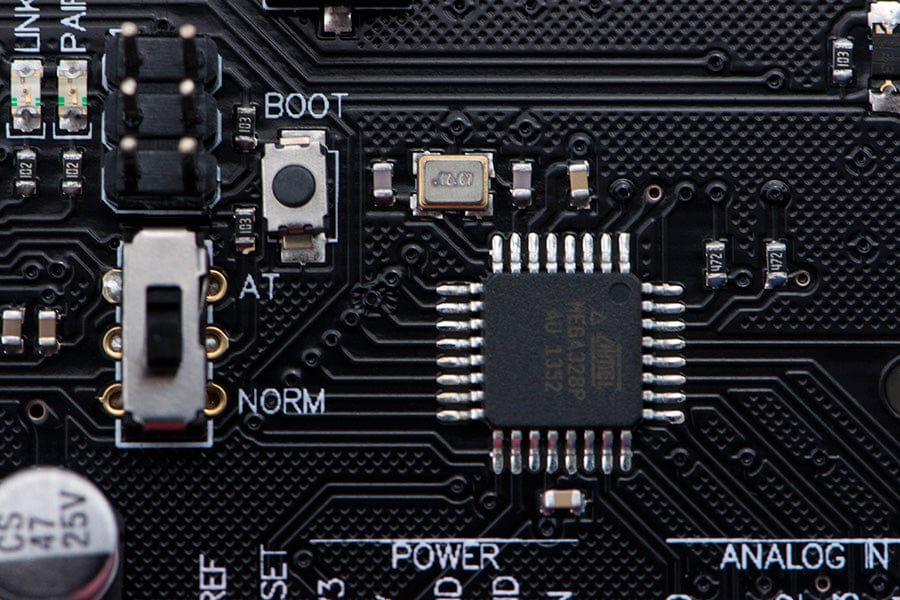
Login / Signup
Cart
Your cart is empty







It's time to get Bluetooth 4.0 into your Arduino project and sync it up with your phone! For aficionados of smart devices and wearables with this new tech (Bluetooth 4.0 low energy, BLE), now you can go further than hacking things apart to start prototyping with your board.
As a member of the Bluno Family, Bluno is the first of its kind in integrating a Bluetooth 4.0 (BLE) module into "Arduino Uno", making it an ideal prototyping platform for both software and hardware developers to go BLE. You will be able to develop your own smart bracelet, smart pedometer, and more. Through the low-power Bluetooth 4.0 technology, real-time low-energy communication can be made really easy.
Note on Compatibility: Bluno Family does not support other brand BLE devices due to the difference in Bluetooth profiles. Read more in wiki.
Bluno integrates a TI CC2540 BT 4.0 chip with the "Arduino UNO" development board. It allows wireless programming via BLE, supports Bluetooth HID, AT command to config BLE and you can upgrade BLE firmware easily. Bluno is also compatible with all "Arduino Uno" pins which means any project made with Uno can directly go wireless!
What's more, we also developed an App for Bluno (both Android and IOS) and they are completely open source. You can modify and develop your own BLE-hardware platform. Below is a quick demo video covering some of the major features of Bluno with the help of an Accessory Shield for Bluno, which will also be available very soon.
In short, you can use Bluno with any Bluetooth 4.0 compatible device and enjoy features such as wireless transmission, master and slave settings, wireless programming and even establishing a Bluetooth HID connection with the PC between devices.
Note: For the demo application and Arduino code, we integrated DFRobot wireless libraries for beginners. The idea is to supply a simple way for you to use wireless modules without learning the wireless communication protocol. However, for the developer, we recommend custom code or choosing the protocol according to the application.









